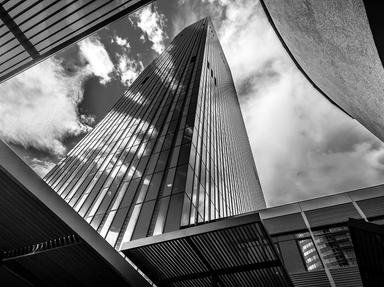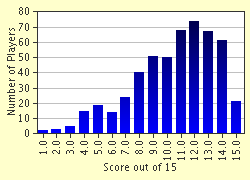Quiz Answer Key and Fun Facts
1. I was appointed as the Supreme Commander of Allied Forces for the invasion of Western Europe in 1944. I was later elected President of my country and served for two terms from 1953-61.
2. I was Generalissimo of the Nationalist forces that were engaged in a bitter Civil War in my country from 1936-39. As victor I became undisputed leader until 1975 suppressing democratic forces but kept my country out of the maelstrom of WWII.
3. I was a Major-General in the armed forces when I seized the leadership of my country in a military coup in October 1965 in order to forestall a Communist takeover. As President I was a staunch anti-Communist and presided over an era of economic growth. I was forced to resign in 1998 by democratic forces amid growing corruption scandals involving close friends and family.
4. I was a leader of Parliamentary Forces in a Civil War with Royalists which lasted from 1642-48. Upon victory I became leader of my country and eventually ruled as Lord Protector until my death in 1658.
5. In September 1973 I overthrew a democratically elected government in a violent military coup. I was a staunch anti-Communist and was President for the next 17 years suppressing all opposition before being forced out of office in 1990.
6. Inspired by the French Revolution I led a slave revolt on a Caribbean island. I declared my country independent with myself as ruler in 1801.
7. As Commander of the Army I led my side in a bitter civil war to victory in 1865. I later served two terms as president of my country from 1869-77.
8. I was a Field Marshal during the Great War and a formidable defensive barrier on the Western Front was named after me. After the war I served two terms as President of the Weimar Republic until my death in 1934.
9. During the Great War I was awarded the Victoria Cross for bravery and rose to the rank of Brigadier General. During the Second World War I commanded the Allied forces in the gallant defence of Crete in May 1941 and later led my country's forces in the North African and Italian campaigns. After the war I was appointed Governor General of my homeland from 1946-52.
10. I was at the centre of my country's struggle for independence in the 1820's. I was appointed president in 1833 and unsuccessfully attempted to quell a rebellion in the province of Texas in 1836. In 1846 I once again led the army during war against the United States. Defeated, I was forced into retirement but continued to play a role in politics for the next 10 years.
11. I successfully led the continental army during the Revolutionary war which was concluded by the Treaty of Paris in 1783 where Great Britain recognised my homeland's independence. I became the first president and served two terms from 1789-97 establishing a precedent for future leaders.
12. I first came to prominence as a skillful field commander when my country occupied Manchuria in the 1930's. Moving to politics I was Minister of War before assuming the role of Prime Minister in 1941. I led my country into the disastrous Pacific war after which I was arrested as a war criminal, tried before an international military tribunal, found guilty, and hanged in 1948.
13. I was a colonel in the army when, along with fellow officers, we staged a military coup in 1952 to overthrow the incompetent and corrupt rule of the incumbent. I successfully intrigued my way to become Prime Minister from 1954-56 and was then President until my death in 1970. In 1956 I successfully defied an Anglo-French invasion when I nationalised the Suez canal. However I led my country to defeat by Israel in the 1967 Six Day War leading to the loss of the Sinai peninsular.
14. I served in the British Colonial Army during the Burma campaign in 1944-45 and later in the police action to suppress the Mau Mau revolt in Kenya in the 1950's. When my country became independent in 1962 I became chief of the army and air force. In 1971 I staged a military coup when the president was out of the country. I proclaimed myself Field Marshal in 1975 and President for Life in 1976. After leading my country to ruin in the 1970's I was overthrown by forces from a neighbouring country in 1979 and fled into exile in Saudi Arabia.
15. I led a successful resistance against the German occupation of my country during WWII. Leading my partisan fighters I assumed the title of Marshal and had liberated my country before the arrival of the Red Army in 1944-45. As President I successfully led a Federation of Nationalities for the next thirty five years pursuing an independent line from the USSR during the Cold War and made my country one of the founding members of the non-aligned movement.
Source: Author
mstanaway
This quiz was reviewed by FunTrivia editor
bloomsby before going online.
Any errors found in FunTrivia content are routinely corrected through our feedback system.

